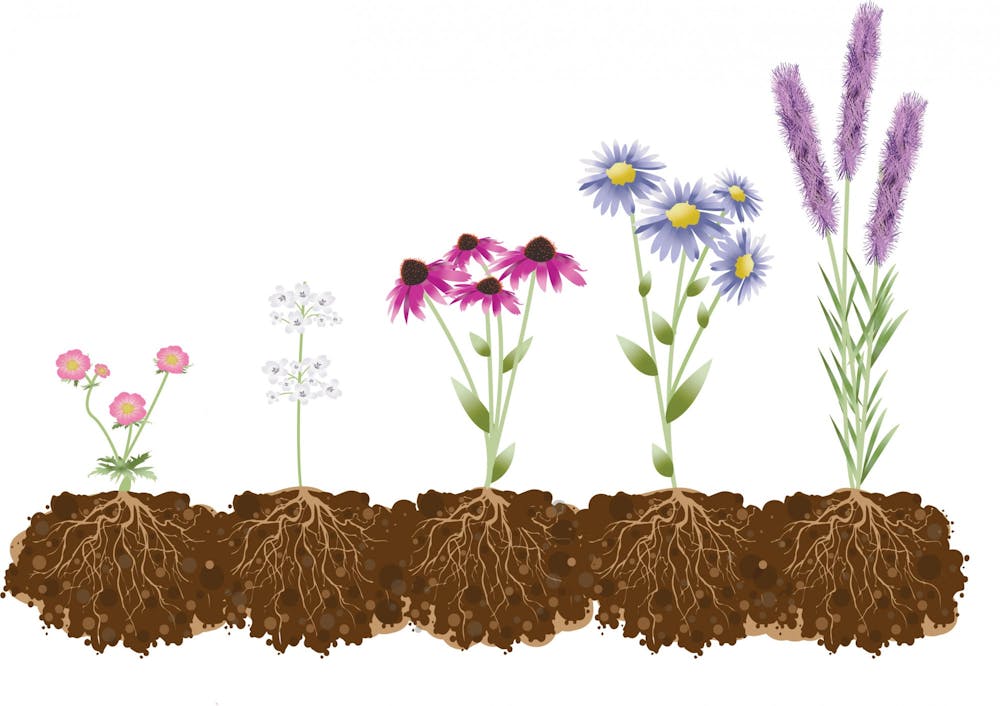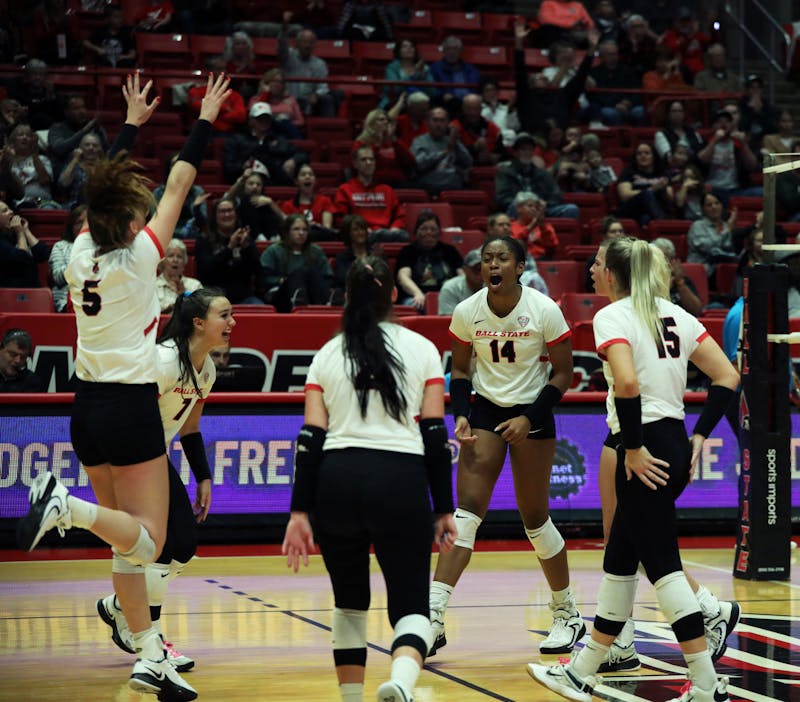
Kami Geron is a freshman mass communication and studio art major and writes “Artful Ruckus” for The Daily News. Her views do not necessarily reflect those of the newspaper.
Gardening is in my roots — pun intended. My mom started gardening because her parents raised her with it. Now, I’ve grown up racing my brother to our garden to see who could pick the most peppers, and who could collect the most flowers for my mom. My mom’s garden helped us learn the payoff of hard work, and how to make healthy choices with our food.
Gardening and taking care of plants is extremely beneficial not just to your health, but to the environment, too. As a child, it taught me so much, and even as an adult, watching my mother garden continues to influence me daily.
I believe everyone should have a garden of some sort, and this Earth Day is a great time to start one.
In today’s society we have a ton of different ways to support our mental health; whether it’s therapy, medication or other coping mechanisms. Gardening is one of those coping mechanisms that can really help you deal with a range of mental health struggles.
According to professional gardener Joe Lamp’l, gardening has numerous psychological benefits. Gardening can teach younger children how to accept imperfections, adults can learn to let loose and relax their need to be perfect, and the elderly’s risk of dementia can even be decreased through gardening daily.
Growing plants helps you connect better with others and the world, too. Natural landscapes have been found to increase recovery from surgery, lessen anxiety and depression, and improve stress management. Gardening also relieves your sense of loneliness, which we all are probably feeling during this time of quarantine.
On top of all the mental health benefits gardening offers, there are also physical benefits. You will be giving your body the regular exercise it needs, which boosts mood and lowers anxiety. From lifting bags of mulch to work your back, hamstrings and arms, to squatting to spread mulch and work your legs and glutes, all the way to prying weeds out of the ground to work your forearms, bicep and shoulders — gardening can get your blood pumping and help you burn some calories.
If fruits and veggies aren’t your niche, there are many different types of gardens you can try, including a pollinator garden. Pollinator gardens supply food, pollen and nectar to pollinator insects, such as bees, so that they can pollinate crops. These are an easier option for gardening rather than launching into a veggie farm; you won’t have to harvest this garden and many plants will come back year after year.
When it comes to gardening, not everything is easy. My mom is a certified master gardener through Purdue University, which requires a 13-week course with a test at the end and 35 volunteer hours in local gardens. I, on the other hand, have succulents barely hanging on to life. The problem with gardening, to me, is I see all these examples of giant, beautiful gardens full of flowers and veggies, and think “No problem, I can do that.” Turns out, I can’t, and it is a lot harder than it looks.
But that’s where you learn to be accepting, to back away from the perfectionist mentality and just enjoy the garden itself.
If you’ve always wanted to start a garden, now's the time. It will be extremely beneficial to your health, mentally and physically, and while the world fights this pandemic, you can stay home, tending to your plants and maybe even grow some fresh food. From personal experience, I can tell you that you will have so much satisfaction in being able to eat your own food or to put together the bouquet of fresh flowers that you planted yourself.
We’re all in this together; you, me, some plants and the bees.
Contact Kami with comments at kkgeron@bsu.edu and @GeronKami on Twitter.





The Daily News welcomes thoughtful discussion on all of our stories, but please keep comments civil and on-topic. Read our full guidelines here.